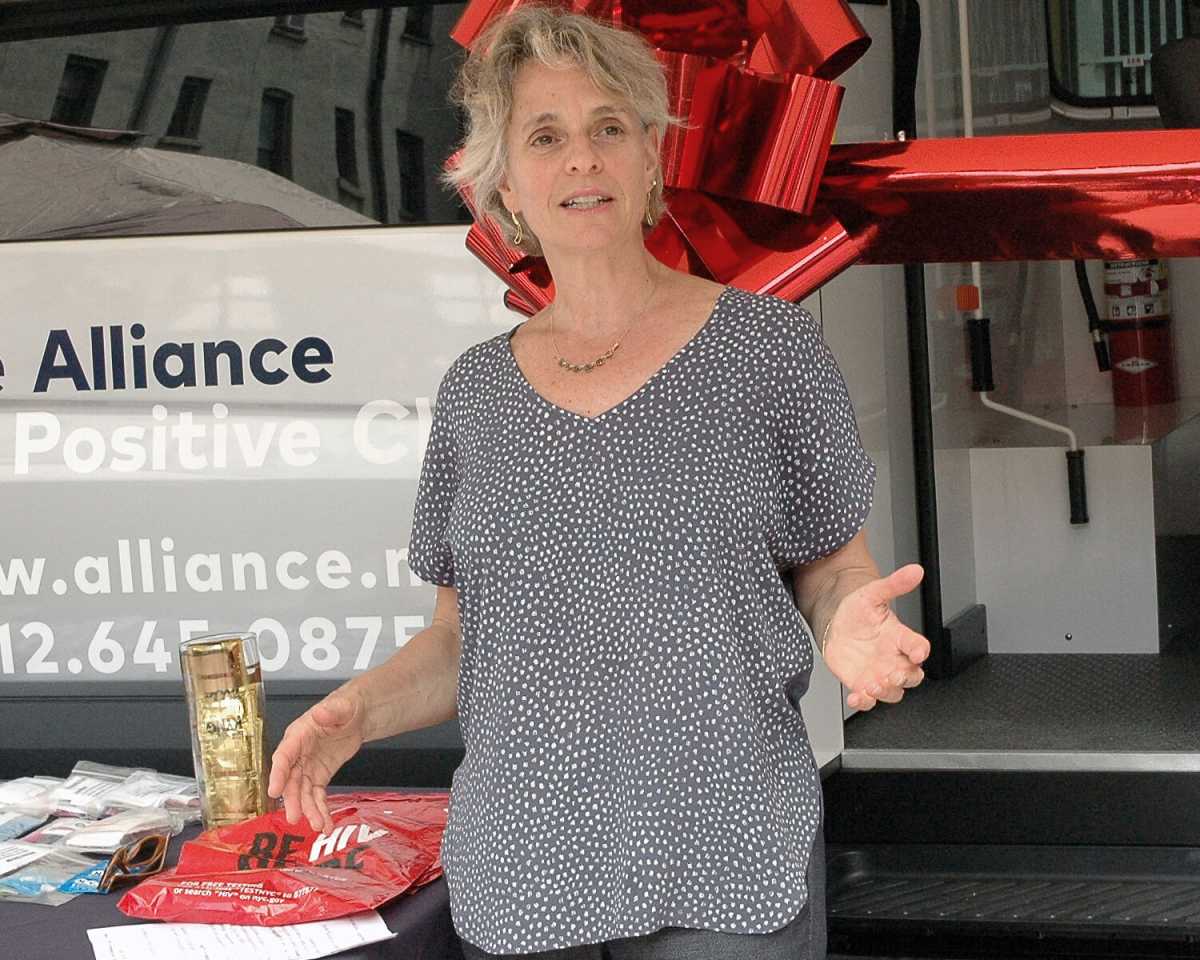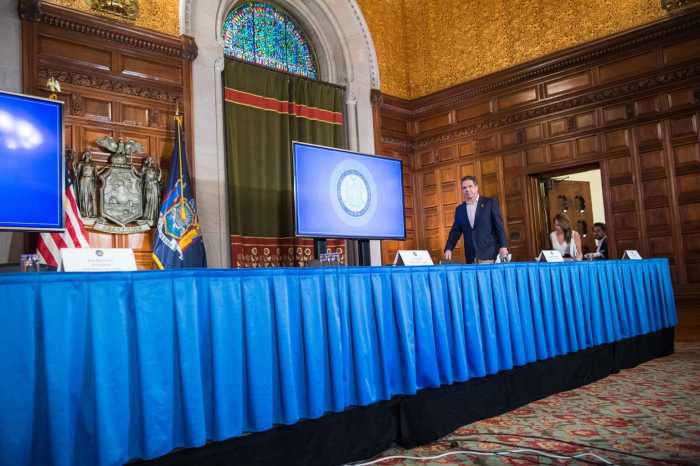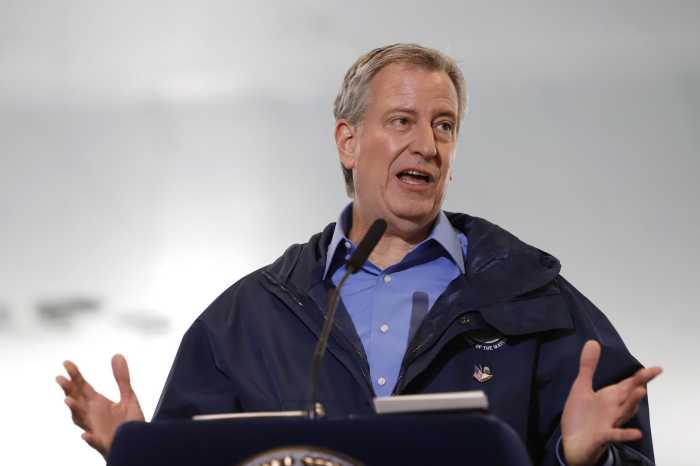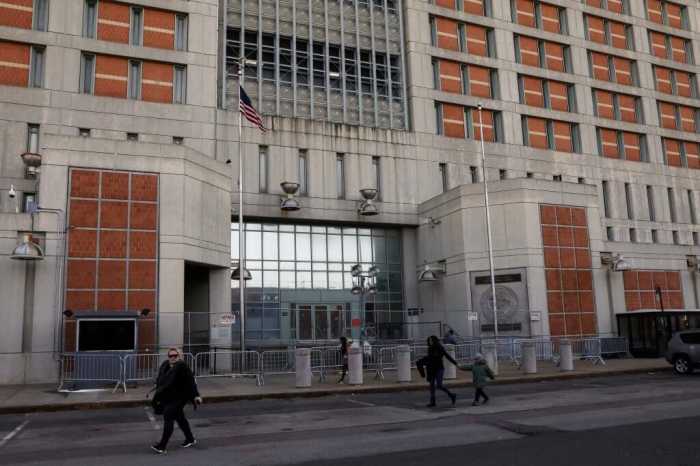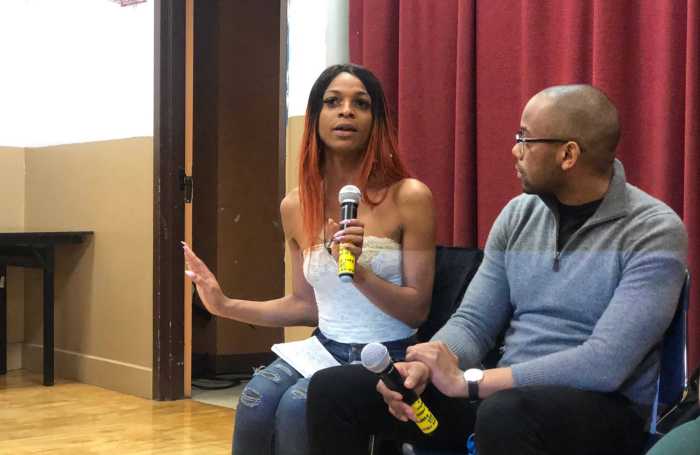Sharen Duke, whose extensive work in the HIV/ AIDS field dates back three decades, finds herself once again on the barricades in a new health crisis — and she hopes the social services community in New York and nationwide can learn from one that first gripped the gay community in the 1980s.
Duke’s public health expertise comes from her role as executive director and CEO of Alliance for Positive Change (formerly the AIDS Service Center/ ASCNYC), where she took charge in 1990. The organization connects those living with HIV/ AIDS and other chronic health conditions to medical care, peer support, and housing. Now, her team is juggling existing duties with new efforts to address the acute needs of marginalized populations brought on by the coronavirus crisis.
Duke’s staff, the bulk of whom are working remotely, have been calling 6,000 clients to check on them — and they’ve noticed that the most pressing issues they face are food insecurity and social isolation. Those challenges have surfaced over and over again in recent reports about many of the city’s vulnerable populations.
In response, the Alliance has ramped up its food pantry efforts, while continuing its syringe exchange program to prevent surges in HIV and hepatitis, providing 24/7 supportive housing placement services, and offering outpatient counseling support. Of the group’s six offices, two remain open to provide essential community services: the Lower East Side Harm Reduction Center at 25 Allen Street and the Pelham Grand Supportive Housing office at 1870 Pelham Parkway South in the Bronx.
As Duke — who was a 2018 Gay City News Impact Award honoree — concentrates on steering her organization’s response to the coronavirus, she has drawn on her memories of the darkest hours of the AIDS crisis in New York. And she has noticed striking parallels between the public’s responses to HIV/ AIDS and to the coronavirus: The xenophobia and discrimination faced by Asian communities is a reminder of the treatment of gay men as HIV/ AIDS emerged, while the failure of government, most prominently the Reagan administration, finds echoes in Donald Trump’s negligent and haphazard handling of the coronavirus outbreak.
Duke pointed to other similarities between the two crises, including widespread feelings of hopelessness stemming from the lack of a vaccine or proven treatment and limited testing for the virus. For New Yorkers who lived through the deadliest AIDS years here — especially gay men — the new pandemic is re-opening wounds of grief and anger.
“There is a lot of PTSD that folks are experiencing from the devastation and the loss and grief,” Duke explained.
The ongoing wail of ambulance sirens in recent weeks and stories of overburdened hospitals have also reminded many New Yorkers of the tsunami of pain that swept over the five boroughs nearly 40 years ago.
“For many of us who have been working on the frontline of the AIDS epidemic, witnessing people getting sick and dying so quickly from coronavirus is reminiscent of the devastation from the deaths and losses from early days of AIDS,” Duke said. “It’s indiscriminate. [Coronavirus] is so much easier to get, but people could not know they’re infected and could bring it home to other loved ones.”
On a more aspirational note, however, she hopes the hardships of the past can be lessons informing the response to the current crisis. She sees a window of opportunity for community-based organizations to work with healthcare providers and policymakers to forge better outcomes — in a model of patient and citizen self-advocacy pioneered in the early years of the AIDS epidemic.
“Community-based organizations, like Alliance, can play a key role in conducting COVID-19 screening, when the technology is made available, in the same way that we received waivers from the New York State Health Department to conduct HIV screening and subsequently hepatitis screening,” Duke explained.
She added that Alliance and other community-based groups have the infrastructure in place from their HIV and hepatitis C efforts to provide access to a COVID-19 vaccine when it becomes available.
“Testing and linkage to medical care is core to the existing community-based infrastructure and medical collaborations that we’ve spent years developing,” she said.
Duke is confident that as the pandemic continues, other lessons from the battle against AIDS can be drawn on, but in the meantime she is focused on the immediate tasks at hand: On one recent day, volunteers flocked to the Alliance’s Washington Heights office to assemble a food package for distribution across the city. In a crisis that has coupled a health emergency with an economic downturn, her organization is struggling to keep up with the demand for food.
“We are in desperate need of donations toward our food pantry program,” said Duke, who explained that the Alliance is seeking out resources everywhere they are available.
The group has established a fund specifically dedicated to its coronavirus relief efforts, with all proceeds dedicated to reducing food insecurity brought on by the new crisis, Duke said. Those who wish to donate can do so through the online fundraiser on the Alliance’s website. That effort, as of April 15, has raised nearly $39,000 of its $100,000 goal.
To sign up for the Gay City News email newsletter, visit gaycitynews.com/newsletter.

